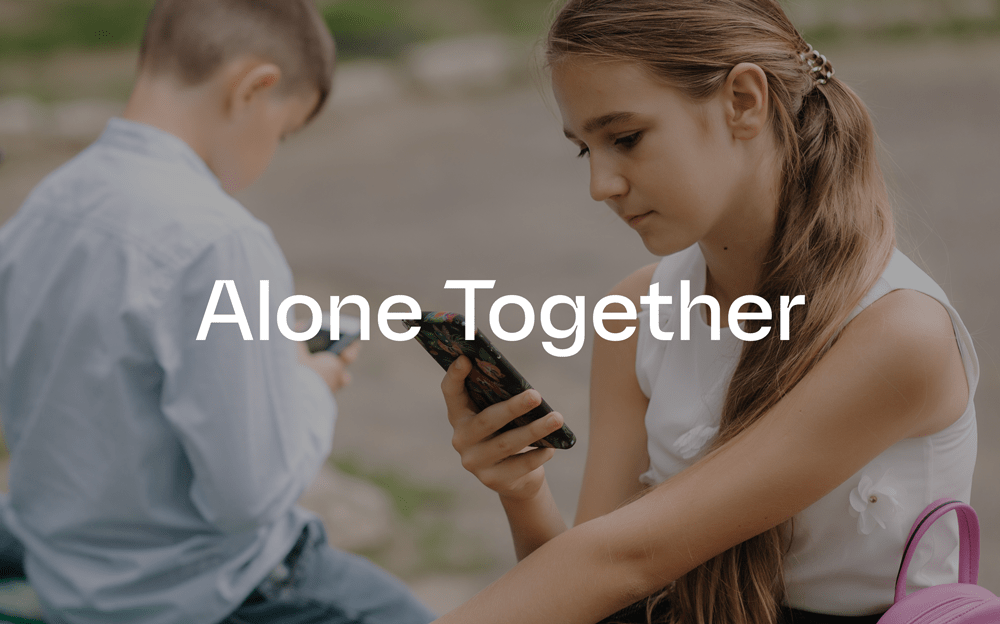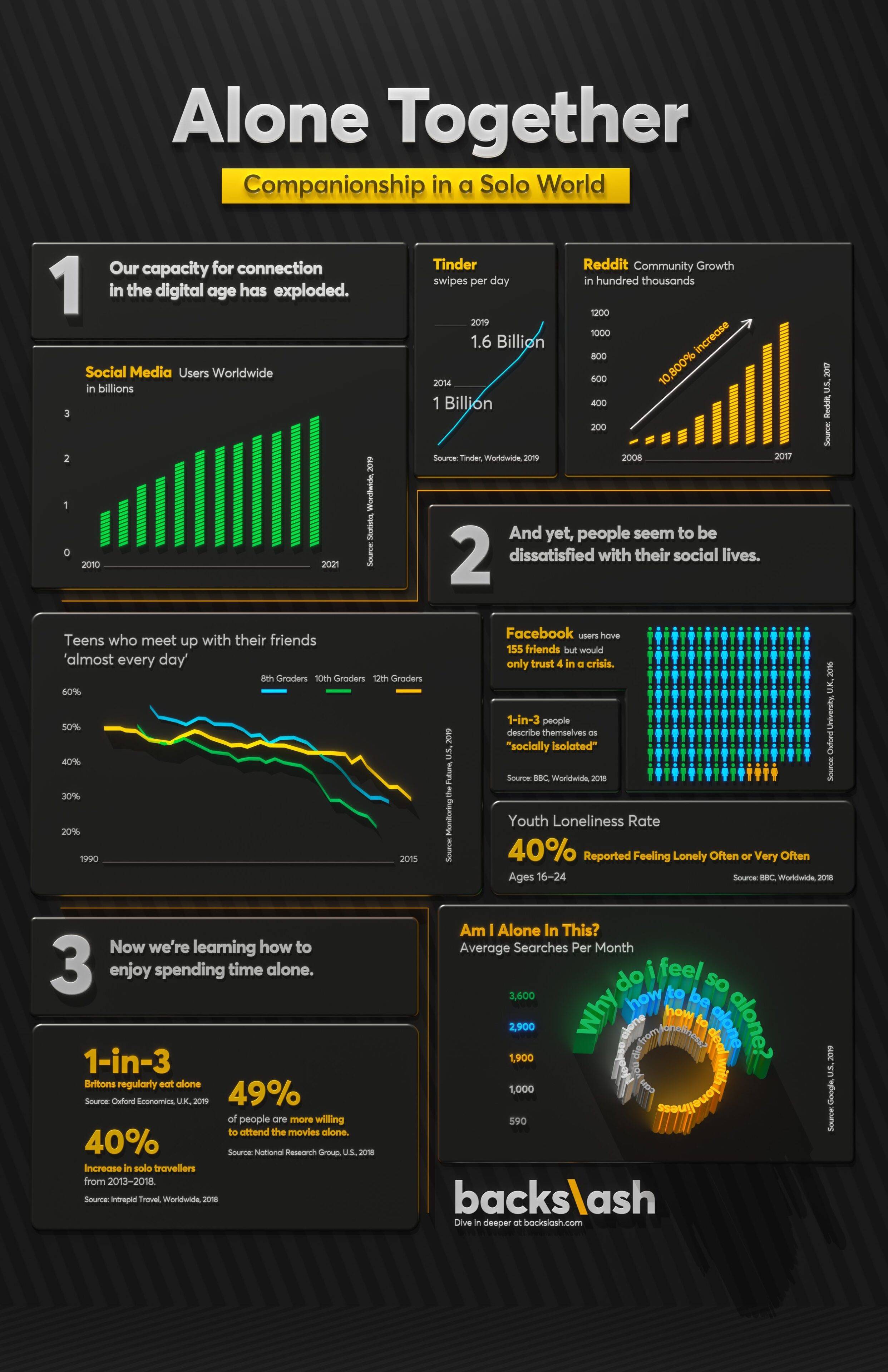
Alone Together
Alone Together: Companionship in a Solo World
We’re more connected than ever, and yet media reports practically scream that we’ve never felt more alone. How can this be? And what exactly are we doing about it? Backslash dives deep into this cultural shift with a documentary, an infographic, and an essay to uncover what being “alone” means today and might mean for your brand’s future.
But first, the so-called “loneliness epidemic” isn’t as black and white as headlines make it seem. In the words of USC’s Director of Belonging, Cat Moore, “There’s no consensus that loneliness has increased. What there is consensus about is that we’re talking about it more.” So why is loneliness on the tip of our collective tongues? There’s more than one answer. Family structures are changing, we are choosing to be single, or declining to join groups the way we have historically, and finally, the elephant in the room; our culture has gone digital, and our ways of relating to each other have yet to find their equilibrium between on- and off-line.
In addition to a documentary, Backslash also produced three videos informing on specific cultural shifts, we call Edges, that surround the loneliness epidemic.
Mental Frontiers
First, mental health went mainstream, then it went rogue. As mental health concerns are increasingly destigmatized, consumers are experimenting with nontraditional methods to improve focus, fight depression, and expand consciousness.
Soloism
Singletons are the fastest-growing households globally. Big box quantities are out, branding for an audience of one is in. Social attitudes to single life are changing in response—smug marrieds beware.
Sex (Re)Education
We live in an age of uncertainty about relationships. The rules of sex are being publicly debated and updated. From MeToo and dating apps 2.0, to Insta-famous doulas, the new ex ed is positive, intersectional and adult.
Human connection is evolving through what we’ve termed the three R’s: remote, replacement and revival.
Remote: Tech and social media have made companionship appear to be just one click away, and in many cases, it is. Think of any topic at all and there is a subreddit, online forum, Facebook group, website, you name it, and you’ll find like-minded people to commiserate with. But these digital relationships are usually just that—digital. And while they can become very deep and meaningful, they tend to stay online according to our interviewee and Redditor of three years, Dennis: “You don’t know anything about that person besides what’s going on right now. It would be cool to meet up one day, but it’s fine just talking to them through [digital] messages.”
Replacement: Why pour time and energy into relationships that demand vulnerability, humanity and emotional risk? Instead, people are turning to surrogates to fill the need for connection. See: Pets. Allergic? How about a plant. Hate plants? CEO of RealDoll and Robotix and interviewee, Matt McMullen, thinks that perhaps a robot might suit you better: “The reasons why a person [may want a robot] are infinite: It could be that they had a series of really bad relationships. It could be that they have never been able to create a deeper bond with a human being. It could be that they are retiring and their spouse died and they want something but they don’t necessarily want another relationship…This is an alternative.”
Revival: In response to our increasing remoteness through online communique, we’re seeing a rise in local community groups, communal work and living spaces and rent-a-person services. These formalized structures fill the blanks of connection that we may lack at home. Rilo Rud, head of Copenhagen-based organization Ventilen, partners lonely youth with volunteers who help relieve long-term loneliness and develop social skills: “We do the things that all other young people do with their friends or when they’re in groups. We go shopping, cook, eat together, do the dishes afterwards. We play board games, we go for walks, and sometimes we just sit and have a cup of coffee or tea and chat.”

There is a crucial distinction between being lonely and being alone. It relates to what we call Soloism, and it demands that we flip the script on branding those navigating life alone with a scarlet letter. Brands have the power to build a new narrative that champions normality and alone time as part of a healthy, balanced lifestyle. We can bring those living alone together by making solo experiences social: Think flexible opportunities for solo customers to connect with others on their own terms and build the social benefits of safety, cost and support into going it alone. Lastly, we can fill the void in physical, local communities by becoming one. What if your brand’s store becomes the new town square?
As humankind adopts Soloism, new forms of companionship will be just as important as the old ones. Whether we are building a new relationship digitally, IRL or nurturing our relationships with ourselves, the potential value that businesses and brands can bring into the equation is only as limited as the imagination.
Want to dive deeper? Check out our essay HERE for the full story.